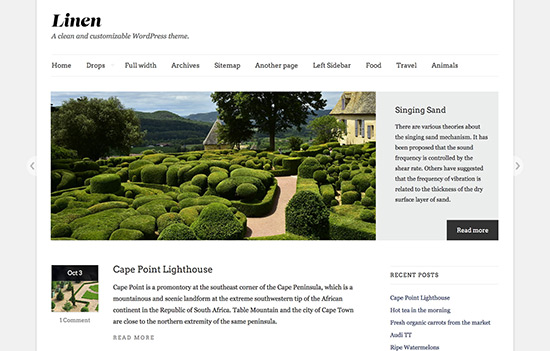How to be more productive
By team on January 3, 2014

For the past month I’ve been learning how to be more productive. It’s amazing how unproductive I can be with readily available distractions. First, I broke down the core things I do online (mostly related to work and the internet) into three broad categories based on what I was actually doing.
Consuming content (reading, watching, learning)
- RSS feeds (yes, I still read these)
- Path (family photo sharing)
- Newspapers
- Magazines
- Books
- Khan Academy
Creating and communicating
- Writing
- Designing
- Coding
- Real time team collaboration (chat)
- Scheduling meetings
Time critical communication, navigation, photos
- Phone calls
- Text messages
- Taking family photos
- Google Maps (for driving directions)
- Notes / to-do list (I use Trello)
Next, I assigned a device that seemed optimal for each category:
- Consuming content (reading, watching, learning): Tablet (iPad Mini)
- Creating and communicating: Computer (MacBook Pro)
- Time critical communication, navigation, photos: Phone (iPhone)
Before this change, I had quite a bit of crossover on these devices. Lots of the same apps were on all three devices. To be more productive, I wanted to assign these apps to a specific device based on the above categories, and then remove them or hide them on all other devices.
Separating content consumption
The first step was separating out my consumption activities, which were the most spread out across devices. They were also a big source of distraction. I moved all my consumption related apps to the iPad Mini, and removed them from my phone and computer. I still keep some of the apps on my computer, but only open them to publish or make announcements.
I now schedule all my consumption activities. Usually before lunch, after dinner, and during specific times on the weekends. Moving all of that consumption to a separate physical device has made this infinitely easier. It’s also more enjoyable and it provides a nice reward during those breaks.
Batching email (biggest difference maker)
While on the computer my goal is to be creating. Writing, designing, coding, etc. But, I also do lots of communicating via email and real-time chatting. I’m most effective doing all of these activities on the computer, but the communication tends to distract from the creating.
Email is a huge focus killer for me while I’m working, as I find myself off on chases across the internet, or thinking about something completely unrelated to the task at hand. These aren’t always bad sessions (I often learn something), but they break focus.
I really needed to minimize email distraction. I use a dedicated email application (Apple Mail) on my computer, and I now turn it off by default. I schedule specific times when I’m going to check email. It’s usually after breakfast, after lunch, and before dinner.
If I could recommend doing one thing, it would be batching email. It has given me a huge productivity boost.
What about critical time sensitive email?
This is a tough one. Most people have certain things that are really critical. What if my site is down? What if my most important customer sends me an urgent email? These are valid concerns, and I think they scare people away from turning off email.
I handled this by moving absolutely critical communication to my phone. Remember, I already removed a bunch of content consumption related apps from my phone (Twitter, RSS, etc.). Here’s how I dealt with critical communication:
- Disabled all notifications for email and moved the app to a secondary screen on my phone. I can still get to my email if I absolutely need to, but this small change removes the temptation of habitually checking email when I’m out with family or friends.
- Added the Pingdom app to my phone and cranked up the notification level. I usually have my phone with me, so I’ll know if one of our sites is down.
- Tell the team to just call me if they have a time sensitive question or something urgent comes up.
If you have some critical emails that you just need to receive, you might consider getting an “emergency” Gmail address and setting it up with the native Gmail app on your phone (with the notification level turned up). This will ensure you always get those critical emails. I’ve also found that you have less mission critical emails than you think you have. Most things can wait a few hours.
Have a schedule
We all have other things in our life unrelated to work. The two most important ones for me are:
- Family time
- Exercise
If I don’t have a schedule, or can’t stick to a schedule, I usually end up frustrated and less productive. On top of that, I miss out on things I know are important to me. I get caught up with work or something else, and I can’t stop. A schedule is reassuring. It’s a gentle reminder that you will have time soon. For example, knowing that I have to stop working in 10 minutes, but I’ll be able to return in 3 hours (because I’ve scheduled time for it) is very liberating. It frees me from feeling like I always have to do it right now. It also liberates others close to me, as they know when I’ll be around and when I won’t.
With that being said, no schedule is perfect, and sometimes you just have to get something important done. For me, these are times when I’ve made a commitment to others (or to myself) that I don’t want to break. There’s also times when a schedule isn’t possible because you’re overwhelmed (holidays, new baby, etc.). The key is not letting those hectic times run too long. Once you get in hectic mode, you feel obliged to stay in hectic mode much longer than you need to. It’s important to be aware you’re in hectic mode, and be on the lookout for signals that things are slowing down, so you can return to a sense of normalcy.
Hopefully these ideas help you be more productive. If you have any tips or ideas, be sure to share them in the comments.
Enjoy this post? Read more like it in Business.






